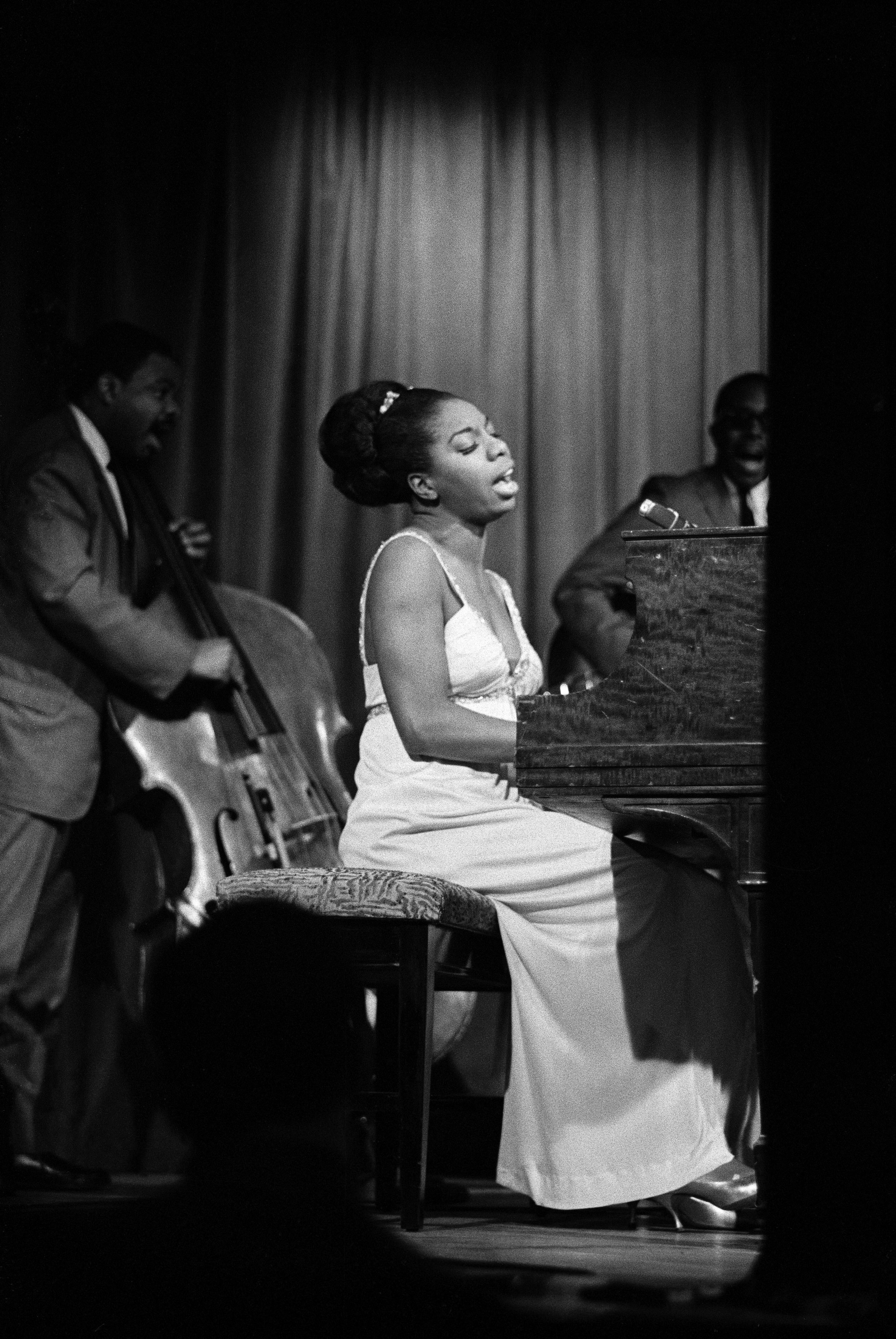Simone, Nina, << sih MOHN, NEE nuh >> (1933-2003), was an African American singer, pianist, and songwriter known for her deep, passionate singing voice and dramatic stage presence. She became known to her fans as the “high priestess of soul. ” Simone performed in a broad range of musical styles, including jazz, blues, folk, classical, pop, rhythm and blues, and gospel. She was also a civil rights activist.

Simone was born on Feb. 21, 1933, in Tryon, North Carolina. Her real name was Eunice Kathleen Waymon. She began playing piano at age 3 and studied classical music at the Juilliard School in New York City. In 1954, Waymon began performing at a club in Atlantic City, New Jersey. Around this time, she adopted the stage name Nina Simone. She took “Nina” from niña, a nickname a Hispanic boyfriend had given her, and “Simone” from the first name of Simone Signoret, a French actress whom Waymon admired. Niña is Spanish for “little girl.”
Simone continued performing in small clubs before recording a version of “I Loves You, Porgy” in 1958 from the George Gershwin folk opera Porgy and Bess. The song became a hit in 1959 and made Simone a star. It was included on her debut album, Little Girl Blue (1958). The album also featured Simone’s popular recording of the title song, as well as “Don’t Smoke in Bed,” “Love Me or Leave Me,” and “My Baby Just Cares for Me.”
Beginning in 1959, Simone released a number of successful live recordings throughout her career. Nina Simone in Concert, released in 1964, featured recordings from three concerts she performed at Carnegie Hall in New York City. It featured the civil rights anthem “Mississippi Goddam.” Simone wrote the song in response to two events that occurred in 1963 in the segregated Deep South region of the United States. These were the murder of the African American civil rights leader Medgar Evers outside his home in Jackson, Mississippi, and the killing of four African American girls in a church bombing in Birmingham, Alabama. Simone performed and spoke at many civil rights meetings and events, including the Selma marches in 1965.
Simone’s other notable compositions included “Four Women” (1966), about the struggles of four African American women; and “To Be Young, Gifted, and Black” (1970), written in memory of her friend Lorraine Hansberry, the author of the play A Raisin in the Sun (1959), who died in 1965. Simone’s other popular recordings included “Nobody Knows You When You’re Down and Out” and “Trouble in Mind” (both 1960); “Don’t Let Me Be Misunderstood” (1964); “Feeling Good,” “I Put a Spell On You,” and “Sinner Man” (all 1965); “I Want a Little Sugar in My Bowl” (1967); “Ain’t Got No/I Got Life” (from the musical Hair, 1968); and “To Love Somebody” (1969).
Simone married Don Ross in 1958. They divorced in 1960. In 1961, she married Andrew Stroud, a New York City police detective who later became her manager. They divorced in 1971. Simone left the United States in the 1970’s and lived in Barbados, Liberia, Switzerland, Paris, and the Netherlands, before settling in Bouc-Bel-Air, near Aix-en-Provence in the south of France. Simone’s autobiography, I Put a Spell on You, was published in 1991. She died on April 21, 2003. Simone was inducted into the Rock and Roll Hall of Fame in 2018. Her daughter, Lisa Celeste Kelly, is an actress and singer who took the stage name Simone.
